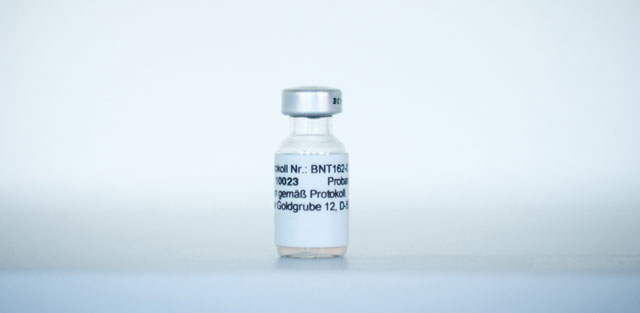
Kampala, Uganda | FLAVIA NASSAKA | Public Health experts have cautioned that it may not be possible for Uganda to receive its initial doses of the COVID-19 vaccine by the end of the month and start vaccinating people in March, as earlier stated by President Yoweri Museveni.
Prof Freddie Ssengooba, a Public Health Policy Expert-based at Makerere University told URN in an interview Friday, that the end of February could be too soon, basing on the conditions that the World Health Organisation gave countries to fulfil to be able to access vaccines through the COVAX facility.
Ssengooba who is also a scientific advisor to the Ministry of Health says COVAX didn’t give a specific date or month of delivery as some of the terms of engagement are still being negotiated.
Through the COVAX facility, Uganda has tentatively been allocated 3,552,000 doses of the AstraZeneca vaccine whereby 35 per cent will be availed to the country in the first quarter and the rest in the second quarter.
But all this depends on not just the country’s readiness but the time taken to submit the shipment plan and the availability of doses by the suppliers.
“We should also note that India is one of the biggest manufactures of vaccines for the entire world. They have actually signed deals to deliver, some of which they now say will be delivered in November,” Prof Ssengooba said.
“So I do not know where Uganda is among the orders made. It is not as easy as saying ‘we are buying from India’ …you will find you are scheduled for January 2022.”
COVID-19: Security, teachers, health workers will be vaccinated first in Uganda#COVAX#Uganda#covid19 https://t.co/PlXjBSOUVU
— The Independent (@UGIndependent) February 5, 2021
AstraZeneca vaccine still under review
Speaking about the same issues at a seminar organized by the Makerere University School of Public Health, this afternoon, Dr Annet Kisakye, the Head of Immunization Vaccine Development Cluster at the WHO-Uganda Office said the other challenge that Uganda is likely to face is that the AstraZeneca vaccine is still undergoing review by the organization which may take a bit of time.
She said feedback about the vaccine which is currently only approved through the prequalification stage is expected at the end of the month. According to her, a country undergoes six steps before finally accessing the vaccine. The Pfizer vaccine is so far the only candidate that has gone through full approvals.
“For a country to receive vaccines under COVAX, you go through six steps. One, you have to make a request to join, then you have to give your national deployment and vaccination plan,” Dr Kisakye said.
The plan is uploaded online for review, a country receives confirmation after the regulatory procedures are completed, then the vaccine is shipped.
However, Dr Alfred Driwale who heads the vaccinations programme in the Ministry of Health said that the country is on course with preparations to receive the drugs once they become available. Although, he listed a number of things that they are yet to do which are a prerequisite for importation. As of today, he said his team was finalizing training materials for health workers which they need before engaging districts to guide on micro-planning.
He also noted that they are yet to gain consensus on aspects of the target population and vaccine acquisition even as the president announced that they have already agreed to initially immunize health workers, teachers and security operatives.
While a lot is yet to be concluded to guarantee the supply of the COVAX side in the next three weeks, the other option for Uganda is to have the vaccines from India’s Serum Institute. The plan is to have 18 million doses from India which will benefit nine million Ugandans. Driwale says they have just initiated the ordering process for the Indian vaccine.
But, to Ssengooba, that too doesn’t come easy. He explained to URN that owing to high global demand, the country which has also become one of the world’s top vaccines exporters has priorities that favour the private sector more. Already, he says, India has announced that they have an order pile that could go up to November.
On Uganda making its own vaccines, Ssengooba says it’s only aspirational.
In terms of figures by the end of June, critical categories of people planned to be vaccinated include 110,000 health workers, 200,000 security operatives, 100,000 teachers, 400,000 persons below 50-years with predisposing health conditions and 3 million people who are older than 50 years.
*****
URN
 The Independent Uganda: You get the Truth we Pay the Price
The Independent Uganda: You get the Truth we Pay the Price



